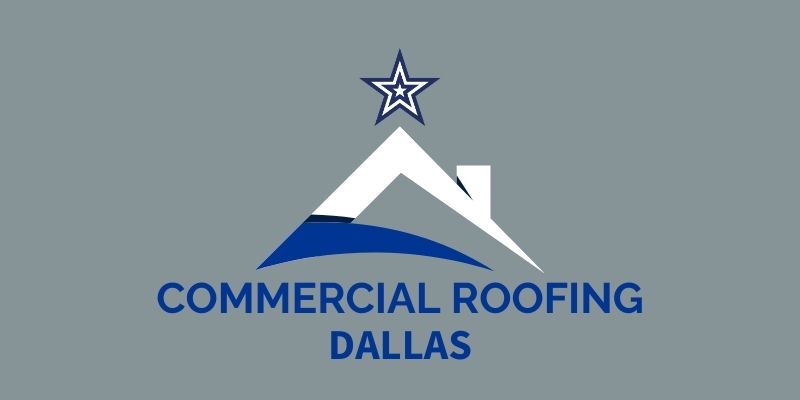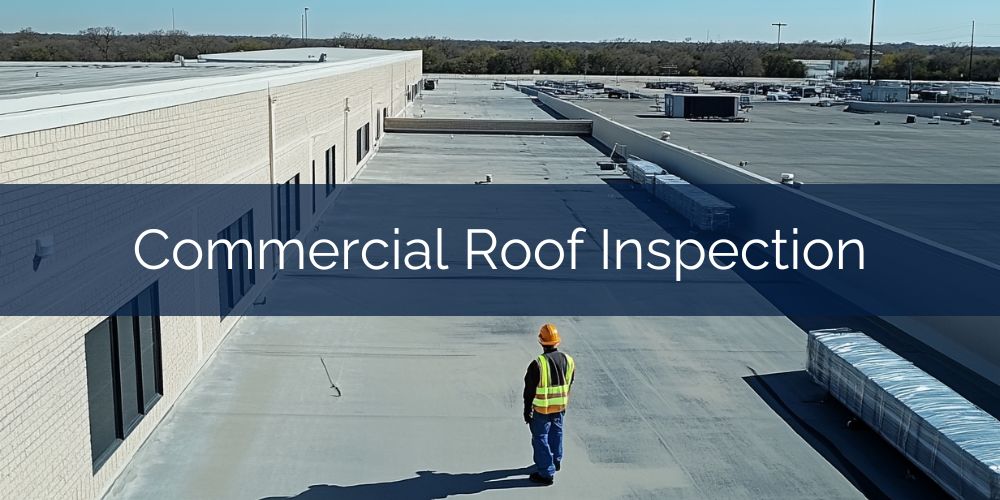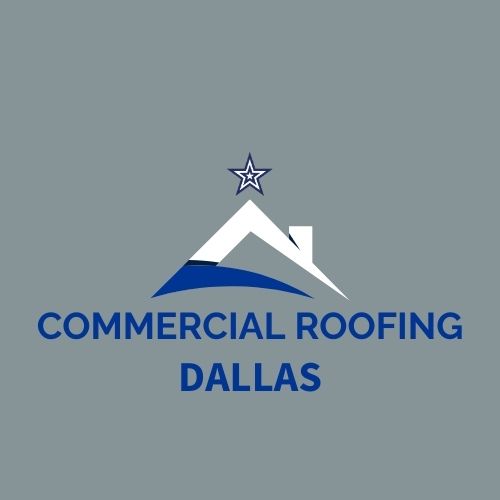A commercial roof inspection involves a thorough evaluation of the structural integrity and overall condition of the roofing system on commercial properties. This process typically includes checking for signs of damage, wear and tear, and potential areas of water intrusion. It is essential for maintaining the roof's durability and functionality, ensuring it can withstand environmental elements and continue to provide protection. Regular inspections help identify issues early, preventing costly repairs and extending the roof's lifespan. Commercial Roofing Dallas provide commercial roof inspection services across the Dallas, Texas area.
What Are Commercial Roof Inspections?
Commercial roof inspections are systematic evaluations conducted by professional roofing contractors to assess the condition, integrity, and lifespan of commercial roofing systems. These inspections involve a thorough examination of the roof's surface, structure, and drainage systems to identify any potential damage, wear, or weaknesses. Regular inspections are crucial for maintaining the roof's functionality, preventing costly repairs, and ensuring the safety of the building's occupants. Typical elements reviewed during an inspection include roof membranes, flashings, drainage systems, and any signs of leaks or water damage. Inspections also consider the effects of weathering and environmental factors, making them essential in regions with extreme climatic conditions. The results of these inspections are used to plan necessary maintenance and repairs to prolong the life of the roof and preserve its protective qualities.
Dallas, Texas, experiences high temperatures, occasional heavy rainfall, and humidity, making regular roof inspections vital for identifying heat-related wear and potential water damage. In Dallas, commercial roof inspections often incorporate methods specific to the region's climate challenges, such as focusing on heat-reflective coatings and effective drainage systems to mitigate the effects of extreme weather.
Have a question about an upcoming project?
What Are The Key Elements To Look For During A Commercial Roof Inspection In Dallas?
A thorough commercial roof inspection in Dallas should focus on weather damage, drainage, and structural integrity. Dallas's climate can pose specific challenges due to its hot summers and occasional severe weather. Ensuring your roof can withstand these conditions can prevent costly repairs and extend its lifespan.
During a commercial roof inspection in Dallas, it's essential to assess the following elements:
- Weather Damage: Identify damage from storms, high winds, and intense sun exposure.
- Drainage Systems: Ensure proper drainage to prevent water accumulation and leaks.
- Roof Flashing: Check flashing for any signs of deterioration or gaps.
- Membrane Condition: Inspect roof membranes for tears, punctures, and wear.
- Structural Integrity: Evaluate the overall condition for weaknesses or structural issues.
How Often Should Commercial Roofs Be Inspected In Dallas?
Commercial roofs in Dallas should be inspected at least twice a year, ideally during spring and fall. Regular inspections help ensure the roof's longevity and identify potential issues early on. Dallas's climate, with its seasonal weather variations and potential for storms, necessitates these periodic checks to maintain roof integrity and functionality.
- Biannual Inspections: Recommended each spring and fall for optimal roof maintenance.
- Weather Events: Inspect following severe storms to assess for potential damage.
- Roof Age: More frequent inspections as the roof ages to catch early wear signs.
- Material Type: Frequency may vary based on roofing material and its susceptibility to damage.
- Energy Efficiency: Regular checks ensure the roof maintains its energy-saving capabilities.
1. Biannual Inspections: Recommended each spring and fall for optimal roof maintenance
Biannual inspections are routine evaluations conducted every spring and fall to ensure the commercial roof remains in optimal condition, addressing any minor issues before they escalate into costly repairs. Regular biannual inspections are crucial for commercial roofs in Dallas, where seasonal shifts and varying weather patterns can pose challenges to roof integrity. Scheduling inspections in the spring and fall helps prevent damage by identifying and addressing potential issues, such as leaks or deterioration, in a timely manner. Biannual inspections also ensure that debris and buildup from winter or summer storms are cleaned, preventing water pooling and other related issues. By maintaining a consistent inspection schedule, building owners can increase their roof's longevity and save significantly on future repair costs. These inspections are a proactive approach to avoiding major roof failures that can disrupt business operations and incur additional expenses.
2. Weather Events: Inspect following severe storms to assess for potential damage
Weather events refers to the critical practice of evaluating commercial roofs after severe storms to identify any damage that could compromise the roof's integrity and function. Periodic inspection of commercial roofs, especially after severe storms, plays a vital role in maintaining the roof’s durability and performance in a city like Dallas, where weather conditions can be unpredictable. Regular assessments help detect early signs of damage, such as membrane tears, punctures, or compromised seals, which can prevent costly repairs and extensive roof failure. Severe storms can cause wind uplift, debris impact, and water infiltration, all of which may accelerate roof deterioration if not promptly addressed. By examining the roof for potential storm damage, building owners can mitigate risks associated with leaks, energy inefficiency, and structural vulnerabilities. Timely repairs and reinforcements ensure the commercial roof's longevity and its ability to withstand future weather events, ultimately protecting the building's overall investment.
3. Roof Age: More frequent inspections as the roof ages to catch early wear signs
More frequent inspections as the roof ages involve regularly scheduled evaluations to identify early signs of wear and address potential issues before they develop into costly repairs. Regular inspections of commercial roofs in Dallas are crucial, especially as the roofing materials age, since they help in early detection of wear and tear. Given Dallas's challenging weather conditions, aging roofs are more vulnerable to leaks, water damage, and thermal changes. Conducting thorough assessments helps in maintaining the roof's structural integrity, ensuring it continues to protect the building and its contents. Inspection schedules might need to be adjusted seasonally to account for variations in weather-related stress, ensuring higher frequency during harsher conditions. This proactive maintenance approach leads to cost savings by extending the roof's service life and preventing significant damage.
4. Material Type: Frequency may vary based on roofing material and its susceptibility to damage
Material type refers to the need for tailored inspection schedules in commercial roofing, influenced by how different materials cope with environmental stressors and physical impacts. Due to Dallas's diverse weather conditions, including high temperatures and occasional severe storms, understanding the susceptibility of roofing materials can significantly impact inspection frequency. Materials like TPO or EPDM may require more frequent checks due to their distinct vulnerabilities to UV radiation and temperature fluctuations, ensuring any early signs of damage do not escalate. To effectively manage maintenance costs and prolong the roof's lifespan, regular assessments can help identify issues specific to each material type—whether it's localized wear on metal roofs or seam vulnerabilities in membrane systems. Ensuring inspections are aligned with the material's unique needs will aid in maintaining structural integrity and avoiding costly repairs. Implementing a proactive inspection regimen that accounts for material fragility helps ensure comprehensive protection against potential failures in Dallas's variable climate.
5. Energy Efficiency: Regular checks ensure the roof maintains its energy-saving capabilities
Energy efficiency in commercial roofing involves maintaining materials and systems that help reduce energy consumption by reflecting sunlight and minimizing heat gain. In Dallas, regular inspections of commercial roofs are crucial for identifying any issues that might compromise their energy efficiency. Such inspections help ensure roofing materials continue to perform optimally in reflecting heat, thus contributing to lower cooling costs in the region's hot climate. Ensuring the roof's energy-saving capabilities through routine checks not only supports cost savings but also enhances indoor comfort by maintaining consistent temperature levels. This proactive approach helps prevent potential energy loss due to unnoticed damage or wear, ensuring that the commercial building's sustainability goals are met. Consistent maintenance of energy-efficient roofing can also contribute to reducing the urban heat island effect, a common concern in densely populated areas.
What Are Common Commercial Roof Inspection Issues In Dallas?
In Dallas, commercial roof inspections often reveal damage from hail, wind, and heat exposure. The area's severe weather patterns, including intense storms and high temperatures, contribute to these common issues, affecting the integrity and lifespan of roofing systems. Regular inspections help identify and address problems early, preventing costly repairs or replacements.
- Hail Damage: Frequent storms cause dents and cracks in roofing materials.
- Wind Damage: Strong gusts can dislodge roofing panels or membrane sections.
- Heat Deterioration: Intense sunlight causes material warping and sealant breakdown.
- Water Leaks: Poor drainage results in persistent roof and structural water intrusion.
- Material Aging: Prolonged exposure leads to natural wear and reduced roof performance.
1. Hail Damage: Frequent storms cause dents and cracks in roofing materials
Hail damage in commercial roofing refers to the impact of hard ice pellets from storms that result in physical indentations and fractures in the roofing materials, compromising their integrity and functionality. In Dallas, frequent hailstorms mean that commercial roofs are often subjected to potential impact damage, making this a common issue during inspections. Spotting such damage early can prevent further complications such as leaks and structural weaknesses, which are prevalent concerns for property owners in storm-prone areas. Regular roof inspections can help identify hail damage promptly, allowing for timely repairs and the maintenance of the roof's protective capabilities. In addition, selecting more resilient roofing materials designed to withstand hail impact can provide added protection against frequent storms. Incorporating hail-resistant elements and adopting proactive maintenance practices can significantly extend the lifespan of commercial roofs in storm-affected regions like Dallas.
2. Wind Damage: Strong gusts can dislodge roofing panels or membrane sections
Wind damage refers to the uplift or displacement of roofing elements caused by high-velocity gusts, which may expose insulation layers or the roof deck to the elements. In commercial settings, especially in wind-prone regions like Dallas, these events can compromise the roof’s waterproofing and structural performance. Membranes such as TPO, PVC, or EPDM, along with metal panel systems, can suffer seam separation or fastener failure if improperly secured or aged. Regular inspections are essential for detecting early signs of vulnerability—such as lifted edges, exposed fasteners, or membrane wrinkling. Employing wind-rated materials and reinforced installation methods—such as mechanically fastened or fully adhered systems—enhances resistance to uplift. Preventive strategies not only safeguard interior assets but also reduce costly emergency repairs and extend the serviceable life of the roof.
3. Heat Deterioration: Intense sunlight causes material warping and sealant breakdown.
Heat deterioration is the process by which prolonged exposure to intense sunlight causes roofing materials to warp and sealants to break down, compromising the integrity of the roof system. Heat deterioration is a common issue observed during roof inspections in cities like Dallas, where high temperatures can exacerbate the degradation of roofing materials. The intense sunlight accelerates the degradation process, leading to material distortion and failure of sealants, which can result in leaks and increased maintenance costs. To mitigate the effects of heat deterioration, roof coatings designed to reflect UV rays can be applied, thereby reducing heat absorption and slowing down the breakdown of materials. Regular inspections are crucial to identify early signs of damage and execute timely repairs or replacements, ensuring the longevity of the roof. Roof maintenance programs can also include applying resilient sealants that withstand high temperatures better, protecting the roof's integrity and performance.
4. Water Leaks: Poor drainage results in persistent roof and structural water intrusion.
Poor drainage leads to water leaks by allowing water to accumulate on commercial roofs, eventually seeping into the building structure and causing damage. Water leaks rank among the most prevalent issues in Dallas commercial roofing inspections due to the city's occasional heavy rainfalls. These rain episodes can quickly overwhelm inadequate drainage systems, resulting in water pooling and eventually penetrating the roof membrane. Regular inspection and maintenance of drainage systems can help mitigate the risk of water intrusion by ensuring that downspouts and gutters are clear of debris. Additionally, installing a high-capacity drainage system designed to manage large volumes of water can significantly reduce the likelihood of water-related damage. Addressing drainage issues proactively helps protect the roofing system's integrity and extends its service lifespan, particularly in regions susceptible to sudden downpours like Dallas.
5. Material Aging: Prolonged exposure leads to natural wear and reduced roof performance
Material aging refers to the gradual deterioration of roofing materials due to long-term exposure to environmental elements, leading to compromised structural integrity and reduced effectiveness. Material aging is a common issue observed during roof inspections in Dallas, particularly given the city's extreme weather conditions, including intense sun and occasional severe storms. Such prolonged environmental exposure accelerates the aging process, necessitating regular inspections to identify early signs of wear and potential vulnerabilities. In Dallas, where weather extremes are common, commercial roofing systems must be maintained vigilantly to prevent accelerated material aging. Regular application of protective coatings and periodic assessments by professionals can help extend the lifespan of roofing materials. Early detection and proactive maintenance are crucial to enhancing the roof's durability and performance, ultimately safeguarding the building against future degradation.


